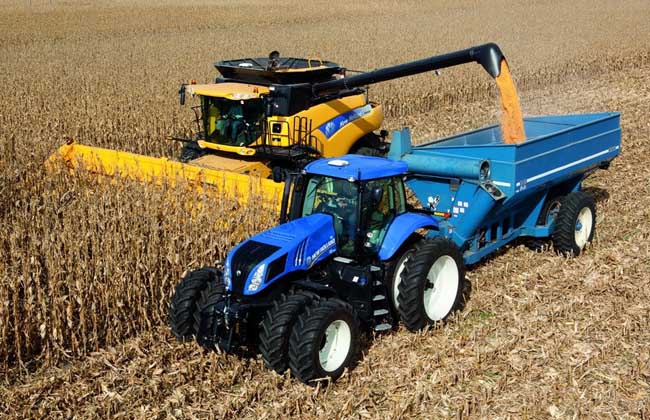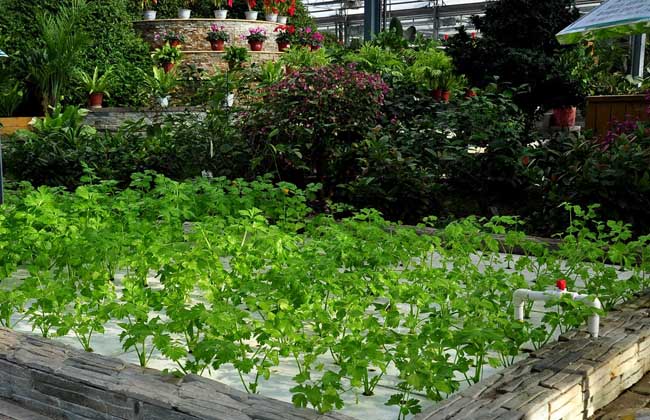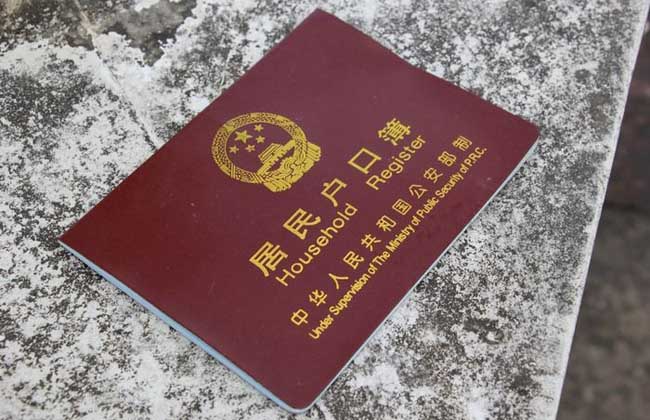Differences between agricultural production cooperatives and people's communes

Agricultural producers' cooperatives are cooperative economic organizations mainly engaged in agricultural production, and cooperative economic organizations organized by working farmers on the basis of voluntary and mutual benefit. Since their inception, agricultural producers' cooperatives have been economically mutual-aid and have a certain organizational structure. Members enjoy certain rights and bear certain responsibilities at the same time. Let's take a look at the difference between agricultural producers' cooperatives and people's communes.
The difference between agricultural producers' cooperatives and people's communes
1. In the past co-operative movement, the means of production were piled up and the property rights of the peasants were abolished, which was not conducive to arousing the enthusiasm of the peasants. On the other hand, farmers' professional cooperatives are voluntary associations and cooperation of farmers on the basis of household contract management, do not engage in land, agricultural tools and other asset cooperatives to join, do not touch the property rights of farmers.
2. In the past, once the peasants joined the cooperative movement, it was very difficult for them to quit. In fact, it restricted the peasants' right to personal freedom. On the other hand, farmers' cooperative organizations adhere to the voluntary principle, and farmers join voluntarily and withdraw from freedom.
3. In the past cooperative movement, peasants had to participate in the production activities organized by the collective and had no decision-making power in production and management. On the other hand, farmers' professional cooperatives do not engage in the merger of the production process, do not do everything, but only carry out services according to the needs of farmers, and can independently decide their own production and operation activities and the pricing and sales of their products. The relationship with the organization is actually a relationship of cooperation, not of command and obedience.
Basic characteristics of agricultural producers' cooperatives
1. Organizational composition: the cooperative takes farmers as the economic main body, and is mainly formed by citizens, enterprises, and institutions engaged in the production and sale of similar agricultural products. Farmers account for at least 80% of the total number of members. Thus a new form of organization is constructed.
2. Ownership structure: cooperatives have realized the combination of labor and capital without changing the household contract management, thus forming a new ownership structure. The cooperative does not take the profit as the purpose to the internal members, and returns the profits to the members, thus forming a new income distribution system.
3. Income distribution: cooperatives do not take profit as the purpose of internal members, and return profits to members, thus forming a new income distribution system.
4. Management mechanism: cooperatives implement the principles of voluntary membership, free withdrawal, democratic election and democratic decision-making, and construct a new management system.
Rights of members of agricultural producers' cooperatives
1. To attend the general meeting of the members and enjoy the right to vote, the right to vote and the right to stand for election, and exercise democratic management of the club in accordance with the provisions of the articles of association.
2. Farmers' professional cooperatives aim to serve their members and seek the common interests of all their members. As a member of a farmer's professional cooperative, he has the right to make use of the services provided by the cooperative and the production and operation facilities provided by the cooperative.
3. The surplus obtained by farmers' professional cooperatives depends on the collection of members' products and members' utilization of cooperatives, which essentially belongs to all members. The law protects the right of members to participate in the distribution of surplus, and members have the right to share the surplus in accordance with the provisions of the articles of association or the resolution of the general meeting of members.
4. The members are the owners of farmers' specialized cooperatives, have the right to know about the affairs of farmers' specialized cooperatives, and have the right to consult relevant materials, especially to understand the operating and financial conditions of farmers' specialized cooperatives, in order to supervise the operation of farmers' specialized cooperatives.
5. The above provisions are the rights enjoyed by members in the Law on Farmers' specialized Cooperatives. In addition, under the circumstances that the articles of Association do not contravene the Law on Farmers' specialized Cooperatives, other rights enjoyed by members may also be stipulated in the light of the actual situation of the cooperative.
Member obligations of agricultural producers' cooperatives
1. The resolutions of the members' General Assembly and the members' Congress embody the common will of all members, and members should strictly abide by and implement them.
2. To make contribution to the club in accordance with the provisions of the articles of association, to clarify the contribution of the members usually has two aspects of significance, one is to take the contribution of the members as the main source of funds for the organization to engage in business activities, and the other is to clarify the credit guarantee basis for the organization to assume debt liability.
3. The purpose for the people to join the co-operatives is to solve the problems that individuals are unable to solve, are unable to solve well, or that are not cost-effective in independent production and operation, and to make use of and use the services provided by the co-operatives. It is not only the purpose of establishing the cooperative, but also an obligation of the members to conduct transactions with the club in accordance with the articles of association.
4. Due to the existence of market risk and natural risk, the production and operation of farmers' specialized cooperatives may fluctuate, with surplus in some years and losses in some years. It is the legal right of members to share surplus when cooperatives have surplus, and it is also the legal obligation of members to bear losses when cooperatives lose money.
5. In addition to the above-mentioned legal obligations, members shall also perform other obligations stipulated in the articles of association in the light of the actual situation of the club.
Related
- A course of planting techniques and methods on how to grow carrots
- How to plant the latest tulips?
- Is it better to pick tea in the morning or in the afternoon? When is the best time for tea to be picked? what is the third or fifth tea?
- Launch Yuanxiao Happy combination Haocha + Tea Yuan healthy Taste
- Penghu Tourism "Fireworks 20 Parade with You"
- 2022 West Lake Happiness holds "Digital Revitalization Voucher" and draws iphone13 and laptop.
- Banqiao Fuzhou social houses are designed to change start-up combined with police elimination to create a safe and livable environment
- The convenient measure of "mechanical weeding" in Xinbei has been abused and the Agriculture Bureau has imposed heavy penalties on the illegal land consolidation.
- Changgeng University Joins Hands with Four Memory Factories to Rescue Memory Talent Shortage
- The list of Taiwan's top 100 MVP managers is listed by the Director-General of the Farmers' Association of Sanxia District.



